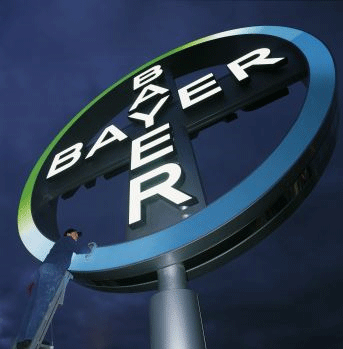Chicago – Bayer is set to revolutionize global agriculture with its ambitious plan to launch ten blockbuster products over the next decade, as announced at the 2024 Crop Science Innovation Update in Chicago. This strategic move aims to support farmers worldwide with cutting-edge technologies that enhance productivity while fostering regenerative agriculture.
With each blockbuster expected to contribute more than 500 million euros to Bayer’s over 32-billion-euros peak sales potential, the company is poised to transform farming practices and environmental sustainability on a massive scale. Bayer’s goal is to expand regenerative agriculture to over 400 million acres globally by the middle of the next decade, promoting soil health, biodiversity, and climate resilience.
Driving Innovation in Agriculture
Bayer’s R&D pipeline is the backbone of its transformative approach, focusing on three pillars: annual portfolio refresh, new product development, and strategic collaborations. The annual portfolio refresh includes deploying 400-500 seed hybrids and varieties and introducing 90-100 new crop protection formulations over the next decade. This ensures farmers have access to the latest innovations to thrive in a changing environment.
The second pillar involves groundbreaking products like advanced seed and trait technologies, novel crop protection solutions, and next-generation insect control traits. For instance, the Preceon Smart Corn System is designed to withstand high winds and challenging weather, promising better crop protection and higher yields. Bayer’s biotech version of this system, expected by 2027, aims to revolutionize global corn production.
Bayer’s strategic collaborations form the third pillar, leveraging technologies like gene editing and biological solutions. By partnering with key players, Bayer accelerates innovation and market introduction. With over 50 assets under evaluation for new collaborations, Bayer’s open innovation approach is set to redefine agricultural practices.
Regenerative Agriculture and Sustainability
Bayer’s commitment to regenerative agriculture focuses on improving soil health, increasing productivity, mitigating climate change, and enhancing biodiversity. The company’s initiatives aim to reduce greenhouse gas emissions, improve water retention, and support the economic well-being of farmers and their communities.
One notable innovation is Bayer’s direct-seeded rice (DSR) system, which can significantly reduce water use, greenhouse gas emissions, and labor dependence. By 2040, Bayer expects 75% of rice fields in India to adopt DSR, a substantial increase from the current 11%.
Advancements in Crop Protection
Bayer’s CropKey approach represents a new frontier in crop protection chemistry. This breakthrough method uses AI and computational modeling to design molecules that precisely target pests, diseases, and weeds. The first product, Icafolin, is a post-emergent herbicide expected to launch in 2028, offering effective weed control for broadacre crops.
Additionally, Bayer’s development of biological products is accelerating. With partnerships and innovative approaches, Bayer aims to grow its biological products market to over 1.5 billion euros by 2035. Products like Ibisio, a biological bird control agent, demonstrate Bayer’s commitment to sustainable and effective agricultural solutions.
Digital Transformation in Agriculture
Digitalization is at the forefront of Bayer’s strategy, with AI technologies speeding up R&D and enhancing precision agriculture. Bayer’s Climate FieldView, with over 250 million crop acres subscribed globally, is a testament to the power of digital farming tools. Collaborations with tech giants like Microsoft further enable Bayer to deliver advanced digital solutions for farmers and the agricultural industry.
Bayer’s ambitious plan to launch ten blockbuster products in ten years is set to transform global agriculture. By driving innovation, promoting regenerative practices, and leveraging digital technologies, Bayer is addressing the twin challenges of ensuring food security and combating climate change. As Bayer continues to pioneer new solutions, farmers worldwide stand to benefit from enhanced productivity, sustainability, and resilience.
Error




